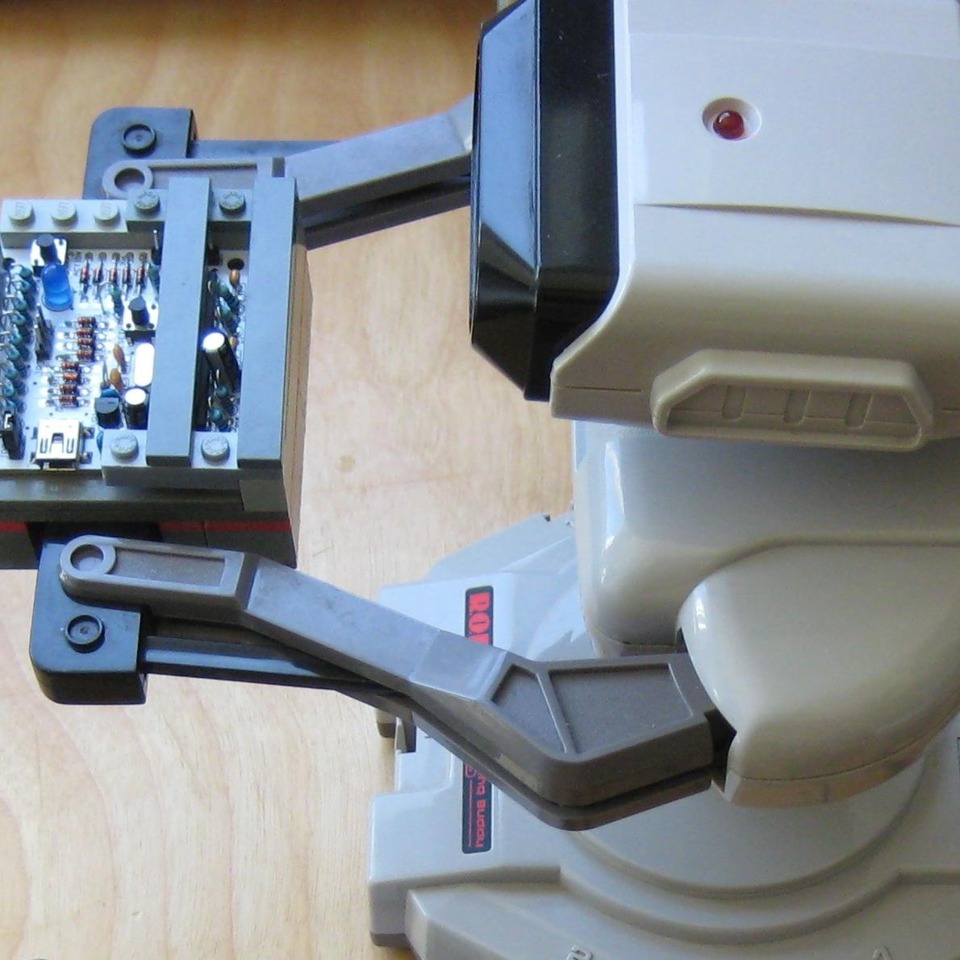
Let's hear it for the deep divers. The people that are really going out there and picking apart video games in ways that most of us can only dream about. I'm talking about the speedrunners. I'm talking about the people out there hunting for new glitches in old games. The dedicated breed out there breaking games wide open. TAS fiends, manipulating memory to cause all kinds of controlled chaos in the classics. All that stuff. But I'm also talking about the people out there creating the tools necessary to let those folks dig deep into areas of games that were never meant to be seen by human eyes. Emulator authors. The folks out there contributing to open-source projects. The teams out there collecting open-source projects together and combining them into easy-to-use toolkits for people who want to stare at RAM addresses for any number of old games, be they NES, PlayStation, N64, Apple II... whatever. It's great that this stuff is out there and it's even greater that it's become a little more acceptable for discussion than it used to be.
It isn't that long ago that being out in the open about running an emulator and/or dumping some ROMs was seen as taboo. The publishers certainly frowned on it. Nintendo always had one comment that they'd give when emulation stories were sent their way for comment, and it'd usually say something like this, which is taken from their legal page:
The introduction of emulators created to play illegally copied Nintendo software represents the greatest threat to date to the intellectual property rights of video game developers. As is the case with any business or industry, when its products become available for free, the revenue stream supporting that industry is threatened. Such emulators have the potential to significantly damage a worldwide entertainment software industry which generates over $15 billion annually, and tens of thousands of jobs.
They practically equate emulation with the same people pumping out bootleg Pokemon cartridges. These days, the company seems to avoid situations where it'd have to publicly comment on such things, since doing so would likely mean a lawsuit would soon follow. Hell, these days Nintendo is making award-winning games that probably took a great deal of inspiration from ROM hacks and Flash-based remixes of their old games. Either way, the industry seems to have taken a more laissez-faire attitude towards the people who are out there, hacking away, pulling apart old games and finding the deep, dark secrets they contain.

Twitch Plays Pokemon is one such example. That's an emulator (sometimes running modified versions of Pokemon ROMs) wired up to an IRC bot and streamed out on a platform owned by Amazon. That's a far cry from the days when you used to have to hang around the darkest corners of the internet and beg people to tell you how you can play Game Boy games on your PC. Back in 1996, that was practically the only thing going. Then Pasofami dropped, iNES and NESticle weren't far behind, and emulation of old console games was officially off to the races. MAME went from emulating Pac-Man and Galaxian to eventually running Neo Geo games that were less than a week old. The lines between zero day piracy and enthusiasm for making things run on things that weren't built to run them had never been thinner. The authors of emulations saw increased interest in their projects, but a new wave of "those damned fighting game kids" flooded in with angry, poorly written support requests (which usually consisted of little more than "WHRER DO I GET ROM?!?!!??!1") and things were never really the same. Some of that has calmed down, I suppose, but these days, Wii compatibility is increasing at an insane rate. There's a PlayStation 3 emulator showing progress in a way that totally blows my mind. You can up-res your old 3DO games to see just how truly awful they've always looked. People are finally starting to tackle the original Xbox. It's a weird thing.
OK, I'll stop trying to get sidetracked by the Old Man Emulation History Hour and get to what I'm actually trying to get across. How incredible is it that someone is able to pick apart Super Mario 64 so thoroughly and completely they're able to produce this video?
You may have already seen this, it's been making the rounds for a bit now. This guy, and others before him, have torn Super Mario 64 apart in so many ways that they're able to almost warp around the world at will. And, if I'm reading this right, it's all stuff that might theoretically be possible on real hardware... though re-recording a tool-assisted movie until it's perfect probably gives you a lot more control over... all that math.
Or how about this tool-assisted Super Mario Bros. 3 video, someone basically hacked in new abilities for Mario, like a Mega Man-style shell shield and a cool Super Metroid-like speed boost, without actually hacking the ROM?
You could try to debate the value of someone devoting hours and hours to these sorts of endeavors, but I put to you that our culture is richer when people dig deep and discover every little nook and cranny of our beloved classics. Hell, even the more disgusting games of our past can be broken and glitched in interesting ways. Take this run of Takeshi no Chosenjou, where the player just kind of manipulates memory to glitch through some walls and end up in at the end of this hunk of garbage in under four minutes.
Efforts like these are an important flip side to game preservation. It's not enough that people find ways--legal or otherwise--to preserve the games of yesteryear. It's also important to me that we understand the whys and hows of their creation. The weird, rough edges that seem to exist in any game if you stare at it long enough is a part of what makes games special. And it's absolutely wonderful that we live in an age where those things can be dissected, disassembled, and studied. Considering how shaky things felt back when brand-new Neo Geo games started turning up in the MAME source code or when the CPS2 Shock crew finally decrypted all those CPS2 games (saving a bunch of dead battery arcade boards along the way), I'm almost a little surprised that things have progressed this far.
Emulation, private servers, and all this other "gray area" stuff is why I tend to not worry that much about game preservation. People have already shown that they'll do what it takes to care for old games no matter what. Obviously, it'd be better to have official, sanctioned efforts in place to preserve these things, but for now we'll just have to take what we can get. Now let's hope that someone finally figures out how to emulate The Grid. Or... the Gizmondo? Look, I just want to see some weird Momma Can I Mow The Lawn speedruns at SGDQ later this year. Is that too much to ask?